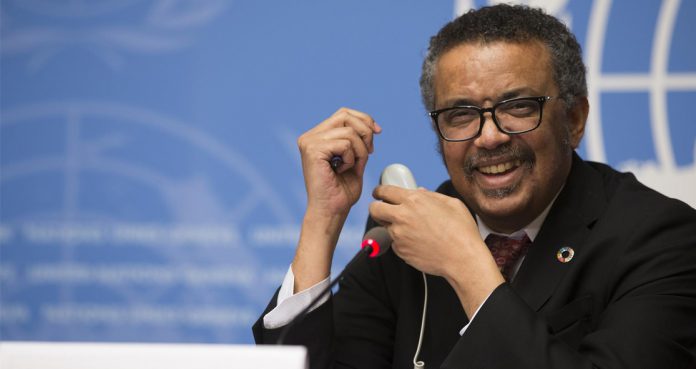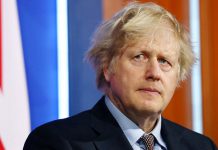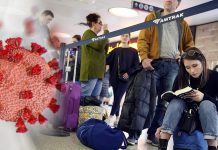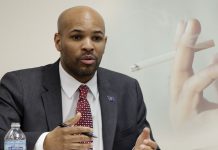According to the Director-General of the World Health Organization, Dr. Tedros Adhanom Ghebreyesus, “The Ebola outbreak in the Democratic Republic of the Congo (DRC) will only end with bipartisan political cooperation and community ownership.”
After returning from a visit to DRC, Dr. Tedros spoke to the Member States in Geneva, where he interacted with the leaders from various sectors to get their commitment. He said the organization has been facing a severe funding gap for tackling Ebola outbreak.
Dr. Tedros said, “Political cooperation must come from across party lines and across borders. Bipartisan political leadership in DRC is the only way that communities will eventually understand the threat of Ebola and take ownership in ending the outbreak. Meanwhile, other countries have a global responsibility to support the dedicated health responders—from DRC, from across Africa and across the world—who are bravely working to save lives.”
The funding needs for combating Ebola are $98 million, but the WHO received $44 million, which left a huge gap of $54 million.
The shortfall of funding is immediate and critical. The organization would not be able to sustain the response at the current scenarios if the funds are not received. Due to the lack of funds, other partners had to stop or reduce their operations.
Dr. Tedros said, “I met with many leaders from all sectors of society. They agreed that they all have a role to play to help people understand the gravity of this disease. The virus steps between the gaps when we do not join hands.”
His recently visited Butembo in late April due to multiple attacks on healthcare workers and medical facilities, and the death of his colleague Dr. Richard Mouzoko.
He said, “The last time I was in DRC it was a very difficult time. But the hundreds of responders working to end this outbreak are committed because the people of DRC need their help. So we sat together to find ways to revitalize and strengthen the response. I returned this time to review progress, and to see whether the changes needed have been made and are working.”
There is a need for a more secure working environment and participation by other UN partners and organizations. Also, there is a need for better use of the Ebola vaccine, a very effective way to tackle the outbreak.
The vaccination strategy has been boosted and offered to many people, including children above six months, pregnant women, and breastfeeding mothers. Dr. Tedros said, “After seeing the rapid response in Uganda, I can only urge the international community to continue to support the preparedness activities ongoing there and in neighboring countries. We have seen concretely how this investment saves lives by controlling the spread of a dangerous pathogen.”























